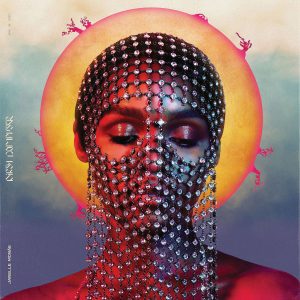
Janelle Monae is a full-fledged force. Though she has yet to garner true mainstream success, she has accomplished so much more than her sales and radioplay might lead one to believe.
Her first two albums have garnered nothing but praise from critics, and so have her EPs. She starred in two Oscar-nominated movies in 2016 (“Hidden Figures” and “Moonlight”). And she has created her own imprint label called Wondaland Records which has a deal with Epic Records, a subsidiary of Sony Music.
Through all of this, Monae has been working her way towards her new album “Dirty Computer.” She has said the concept behind the album came before she released her last studio album, but she felt her fans would want her to continue the path the first album had forged. Now, she feels like it is time to be boldly herself.
“Dirty Computer” is an expansive work tackling self-identity, black empowerment and the political state of the country. The album has an accompanying movie that Janelle Monae calls an “Emotion Picture.” The movie takes place in a dystopian future where people are cleansed of their originality.
The term “dirty computer” is a metaphor Monae uses for minority cultures that are relegated to being defined as other. Over the course of the album Monae claims power in the flaws of the system that make her other.
The title track, “Dirty Computer,” leads the album as a smooth introduction, featuring the harmonic work of Beach Boys legend Brian Wilson. While it has the potential to come off as hokey, it feels so sincere. The song transports you to Monae’s headspace and dreamily fades out.
Along with the work of Brian Wilson, there are also features from Pharrell, Zoe Kravitz, Grimes, writing from Julia Michaels and a speech from Stevie Wonder. It is obvious that people within the industry respect and admire Monae.
While all of these artists have distinct touches that often overshadow the voice of those they work with, Janelle Monae never cedes the spotlight. Monae has co-writing credit on all of the tracks, save for the interludes. It is obvious that the album is truly her vision.
Her distinct combination of R&B, pop and soul is sexy, playful and unique. There are traces of the mentorship she received from the late Prince. She carries on his legacy, without ever claiming to represent the next generation of his music.
“Crazy, Classic, Life” is one of the catchiest tracks on the album that really sets up the arc of the albums story. The production is so tight and detailed, but manages to seamlessly change moods multiple times.
“Screwed” is a tongue-in-cheek track about the political climate. It’s got a groovy bass line and Monae’s and Zoe Kravitz’s voices mix so well together. The same can be said about Monae and Grimes on “PYNK.” Grimes performs some harmony vocals that you have to listen closely to to distinguish from Monae’s own voice.
On “Django Jane,” Janelle gives some of the hottest bars we’ve heard in 2018. She eschews the traditional song structure and instead presents a through-composed rap with what is basically a three-minute verse. Every line is steeped in multiple meanings, and her flow is fire. It’s 2018’s version of “Formation.”
The first time I heard “Make Me Feel,” I immediately thought of Prince. It’s part “Let’s Get Crazy,” part “I Would Die 4 U.” But, in no way does it come off as a copy/paste job. You can feel that it is an intentional homage, but Monae still has her own message to convey.
The track was a sort of coming out for the singer, who would later officially define herself as pansexual in an interview with Rolling Stone. While the song doesn’t overtly say it, the accompanying music video, which is included as part of the “Emotion Picture,” hinted at this.
If you are looking to get to the heart of who Janelle Monae is, look no further than “I Like That.” It is a self-reflective track where she defines her personality and how she totally doesn’t care what you think. Her rap on the bridge is crushing and empowering at the same time.
That mixture of crushing and empowering is really the heart of the album and what it seems to mean to be a dirty computer. In each of the songs Monae finds the insecurity, but fuels herself from it.
The closing track, “Americans,” is an interesting track where Janelle Monae takes on various roles. She masquerades as multiple American personas to highlight the differences in ideologies present within our country, but unifies them with the impassioned chorus “Don’t try to take my country, I will defend my land. I’m not crazy, baby, naw, I’m American.” It’s a hopeful reminder that no matter how many issues we are debating and trying to solve, we are in this crazy social experiment together.
Janelle Monae has been riding on critical success in the industry for a while, but “Dirty Computer” should be her moment to shine in the mainstream spotlight. It is unlikely that another album will come this year that so successfully tackles political issues and defines the artist behind the album.
The film that accompanies the album debuted on BET and MTV. While not a must to appreciate the music, it is a very interesting watch. It is available on YouTube.

